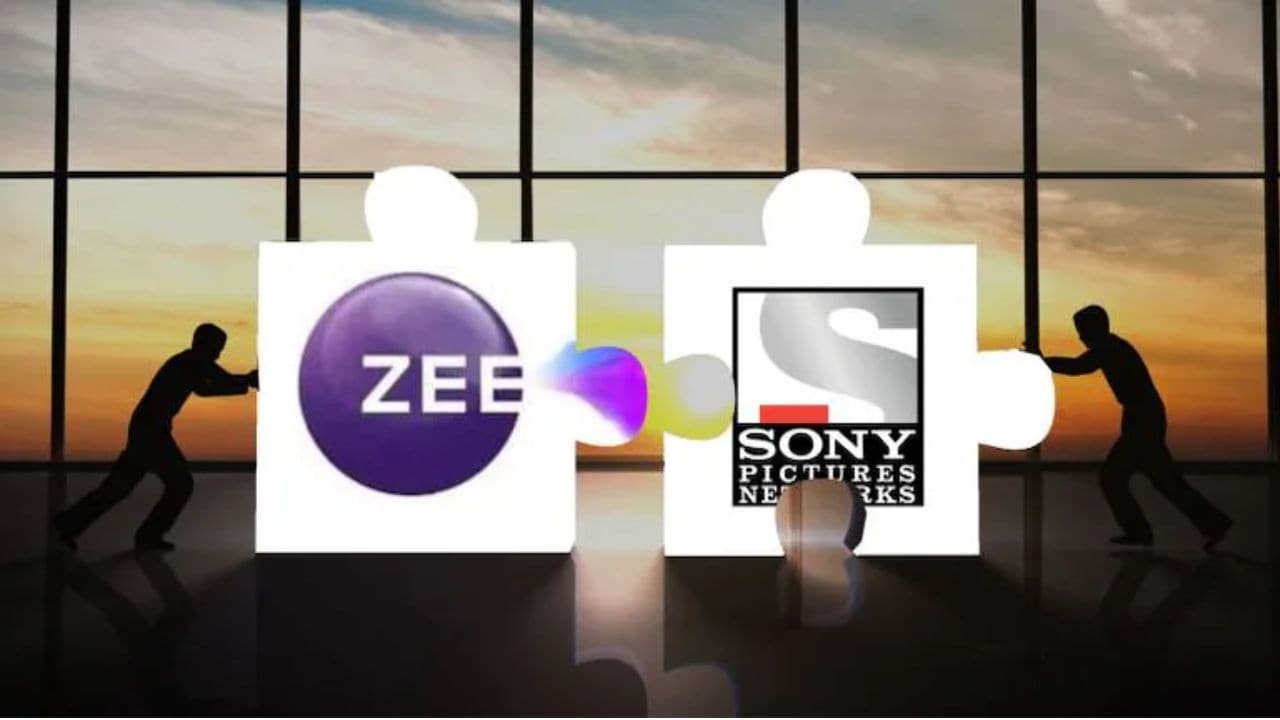The Zee-Sony merger, initially set for December 21, 2023 continues to grapple with uncertainties, pushing potential completion to February or April 2024.
According to experts, Sony is considering the requested deadline extension made by Zee in December 2023.
“On 18.12.2023, an extension was sought by Zee to implement the merger, however, after a lapse of two weeks, Sony has yet not granted an extension sought by Zee. In light of the uncertainty over the merger deal and no extension granted, the shares of Zee dropped drastically. However, considering the positive trend of the shares of the Zee for the past one week, it is likely that an appropriate extension would be granted by Sony to close the merger,” said Siddharth Joshi, advocate, Delhi High Court.
Read More: Zee Sony Merger: ZEEL and Sony get one month extension to close $10 billion merger
In order to close the merger, it would be important that Zee submits a plan that would complete the pending critical conditions which are imperative for the closure of the merger.
Shareholder concerns
Alongside the volatility of Zee shares, shareholder voting results express investor reservations, highlighting concerns about the merger’s success.
Last month, Zee notified stock exchanges that resolutions for the reappointment of independent directors Vivek Mehra and Sasha Mirchandani were unsuccessful, lacking the required 75 percent shareholder approval for special resolutions. Additionally, the reappointment of Adesh Kumar Gupta, another independent director, became void when he withdrew his candidacy three days prior to the AGM on December 13, citing personal reasons. Mehra faced a 52 percent vote against his reappointment, while Mirchandani encountered a 29 percent dissent from shareholders.
Read More: ZEEL names three new independent directors
“The voting results signify apprehension not only among minority investors but also among the devoted/ trusted Investors regarding the anticipated success of the merger. There is a prevailing sentiment that investors harbour concerns about the possibility of the merger not materialising, leading them to express reservations about the continuity of the current board members in the standalone Zee entity. This sentiment may stem from a perceived failure of the existing board to effectively facilitate the closure of the merger, as reflected in the voting patterns,” said Prateek Lakra, founding partner at law firm Clergy and Wisemen.
Possible roadblocks
A merger does not become effective upon approval of a scheme of merger by honourable NCLT (National Company Law Tribunal) , said experts.
It becomes effective only after requisite approvals by the shareholders of transferee as well as transferor company and certain permissions from relevant authorities are obtained post the approval of the merger scheme. These approvals/sanctions are most of the time not obtained within a decided time, therefore parties mutually decide for extension of previously decided period to complete such conditions/approvals.
“There is no bar by law or under the scheme for extension of time and it purely depends on the patience and mutual appreciation of the parties,” said Rajiv Sharma, Partner, Singhania & Co.
Any merger faces three types of roadblocks which could either be requisite approvals by the shareholders and creditors, applicable governmental approvals, and internal agreement or consensus among the parties to the merger.
“As regards the first two roadblocks, they are primarily procedural in nature, therefore, at most be regarded as speed breakers. However, the internal arrangements among the parties to the merger regarding who shall head the merged entity, and under whose flagship the merged entity shall function are bigger concerns which may at times become non-manageable roadblock,” added Sharma.
But is there mutual appreciation between the parties involved? Apparently not, particularly concerning the appointment of a leader for the merged entity.
Per the initial agreement, Punit Goenka, MD and CEO of Zee Entertainment Enterprises Ltd (ZEEL), was slated to assume the role of MD and CEO in the merged venture. SPNI (Sony Pictures Networks India) was intended to hold 50.86 percent of the company, Zee’s promoters would have 3.99 percent, and the remaining 45.15 percent was to be allocated to public shareholders.
However, Sony Group Corp has been pushing for its own India MD and CEO, NP Singh, to become the CEO of the newly formed Zee-Sony entity due to stringent corporate governance norms in Japan and the US.
In addition to the above consensus being arrived at between the companies, another crucial event which can be a roadblock for the merger is the Appeal filed by Axis Finance and IDBI Bank before NCLT challenging the grant of approval for the merger between Zee and Sony. The Appeal is coming up for final disposal on 08.01.2023, therefore, in order for the merger to go forward, it would be imperative that the approval order passed by NCLT is not set aside.
Read More: National Company Law Appellate Tribunal denies stay on Zee-Sony merger
